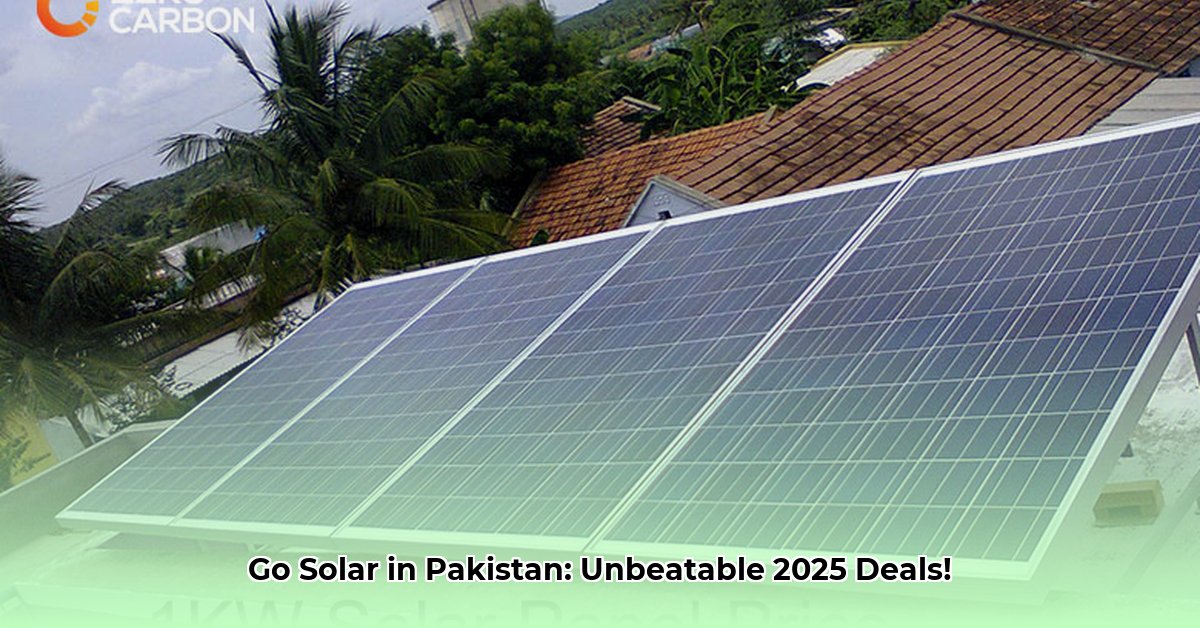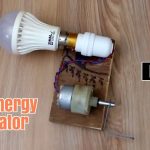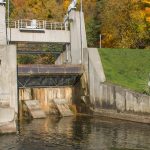Tired of power outages and skyrocketing electricity bills? Solar power is rapidly becoming a cost-effective and reliable solution for homes and businesses across Pakistan. This comprehensive guide provides you with the latest solar energy prices in Pakistan, detailed brand comparisons, and expert advice on installation and maintenance. Whether you’re a homeowner, a business owner, or simply curious about the potential of solar energy, we’ll equip you with the knowledge you need to make informed decisions and harness the sun’s power. For more information on solar energy plans, check out TXGenCo.
Solar Energy Prices in Pakistan: A Detailed 2025 Guide
Investing in solar energy can significantly reduce your electricity costs and provide a reliable power source, especially given the frequent load shedding in many areas of Pakistan. Let’s examine the factors influencing solar energy prices in Pakistan in 2025, empowering you to make the best choices for your energy needs.
Understanding the Cost of Solar Power: Installation and System Pricing
The cost of a solar system in Pakistan can vary widely depending on several factors. A typical residential system (around 5kW) can range from PKR 300,000 to PKR 600,000, including installation. The price per watt for A-grade panels generally falls between PKR 30 and PKR 45. While cheaper, B-grade panels might seem attractive, they often come with shorter warranties and potentially lower performance.
Key factors that influence the total cost include:
- Panel Type: Monocrystalline panels are generally more efficient and expensive than polycrystalline or thin-film panels.
- Panel Brand: Established international brands often have higher prices due to their proven reliability and performance.
- Panel Grade: A-grade panels offer the highest quality and performance, followed by B-grade and C-grade.
- System Size: Larger systems require more panels and components, increasing the overall cost.
- Installation Costs: Labor, mounting hardware, wiring, and other installation-related expenses contribute to the final price.
- Inverter Type: String inverters are cheaper but microinverters maximize the energy harvest and come with panel-level monitoring.
- Currency Exchange Rates & Import Duties: Fluctuations in currency exchange rates and import duties can impact prices, as most solar components are imported.
Leading Solar Panel Brands in Pakistan in 2025
The Pakistani solar market features a competitive mix of international and local brands, each offering unique advantages.
International Brands:
- Longi: Known for their high-efficiency monocrystalline panels and innovative technology.
- JA Solar: Offers a wide range of panels for residential, commercial, and utility-scale applications.
- Jinko Solar: One of the world’s largest solar panel manufacturers, with a strong focus on research and development.
- Canadian Solar: Renowned for their quality, reliability, and extensive warranty programs.
Local Manufacturers:
- Reon Energy: A leading provider of solar energy solutions in Pakistan, with a focus on quality and customer service.
- Premier Energy: Offers a range of solar products and services, including installation, maintenance, and financing.
- Pantera Energy: Specializes in providing customized solar solutions for residential and commercial customers.
When choosing a brand, consider factors such as panel efficiency, warranty terms, customer reviews, and the availability of local support and service.
Navigating the Challenges and Opportunities in Pakistan’s Solar Market
Despite its immense potential, Pakistan’s solar market faces challenges:
- Supply Chain Disruptions: Global supply chain issues can lead to delays and price increases.
- Inconsistent Panel Grading: Lack of standardization in panel grading makes it difficult to compare products accurately.
- Financing Constraints: Access to affordable financing remains a barrier for many potential customers.
- Regulatory Uncertainties: Evolving regulations and policies can create uncertainty for investors and consumers.
However, the opportunities are significant:
- Government Incentives: Government initiatives like net metering and subsidized financing are promoting solar energy adoption.
- Growing Local Manufacturing: Increased domestic production can reduce costs and create jobs.
- Falling Panel Prices: Global solar panel prices have been declining, making solar energy more affordable.
- Increasing Energy Demand: Pakistan’s growing energy demand makes solar energy a critical component of its future energy mix.
Making Solar Work for You: Actionable Steps
Whether you’re a homeowner, business owner, or policymaker, here’s how to maximize the benefits of solar energy in Pakistan:
For Homeowners:
- Assess Your Energy Needs: Review your electricity bills to determine your average monthly consumption.
- Get Multiple Quotes: Contact at least three reputable solar companies for detailed proposals.
- Check Installer Credentials: Verify the installer’s licenses, certifications, and customer reviews.
- Understand Panel Specifications: Pay attention to panel efficiency, warranty terms, and performance guarantees.
- Explore Financing Options: Investigate government incentives, bank loans, and leasing programs.
- Consider Battery Storage: Evaluate the benefits of adding battery storage for backup power and increased energy independence.
For Solar Companies:
- Provide Transparent Pricing: Offer clear and detailed pricing, including all costs associated with the system and installation.
- Invest in Quality Training: Ensure your staff is well-trained in solar system design, installation, and maintenance.
- Build Strong Supplier Relationships: Establish reliable supply chains to minimize delays and ensure consistent product quality.
- Offer Excellent Customer Service: Provide prompt and responsive customer support to build trust and loyalty.
- Stay Up-to-Date on Industry Trends: Keep abreast of the latest technological advancements and regulatory changes.
For the Government:
- Streamline Permitting Processes: Simplify and expedite the permitting process for solar installations.
- Expand Financial Incentives: Increase financial incentives for solar energy adoption, such as tax credits and rebates.
- Promote Local Manufacturing: Support the growth of Pakistan’s solar manufacturing industry through incentives and policies.
- Enforce Quality Standards: Implement and enforce quality standards for solar panels and components.
- Invest in Grid Infrastructure: Upgrade the grid infrastructure to accommodate increased solar energy production.
Sunny Days Ahead: The Future of Solar Energy in Pakistan
Pakistan has the potential to become a leader in solar energy, contributing to a cleaner, more sustainable, and energy-secure future. By addressing the challenges, capitalizing on the opportunities, and making smart choices, we can unlock the full potential of solar energy for the benefit of all Pakistanis.
Understanding Solar Panel Grades in Pakistan
Comparing solar panel grades is an essential step in making a well-informed purchase. Let’s explore the key factors that differentiate solar panel grades and how they influence performance and cost.
Solar Panel Grades: A-Grade vs. B-Grade
- A-Grade Panels: These are the highest-quality panels, meeting strict manufacturing standards and exhibiting minimal cosmetic defects. A-grade panels offer the best performance, efficiency, and lifespan.
- B-Grade Panels: These panels may have minor cosmetic imperfections, such as scratches or discoloration, but their performance is generally not significantly affected. B-grade panels offer a more affordable option without sacrificing too much quality.
- C-Grade Panels: These panels have more noticeable defects and may have slightly reduced efficiency. C-grade panels are typically the least expensive option but may not offer the same long-term reliability as A- or B-grade panels.
It’s important to note that there is no universally standardized grading system for solar panels. Therefore, it’s essential to ask for detailed specifications and compare products from different manufacturers carefully.
Key Factors Influencing Solar Panel Prices
Beyond panel grade, several other factors influence the price of your solar panel system:
- Brand Reputation: Established international brands often command higher prices due to their reputation for quality and reliability.
- Panel Type: Monocrystalline panels are typically more efficient and expensive than polycrystalline panels.
- Wattage: Higher-wattage panels generate more electricity, increasing the upfront cost.
- Inverter Type: String inverters are typically more affordable than microinverters or power optimizers.
- Installation Costs: Installation costs can vary depending on the complexity of the project and the installer’s rates.
Choosing the Right Solar Panel: A Step-by-Step Guide
- Assess Your Energy Needs: Calculate your average daily or monthly electricity consumption.
- Determine System Size: Work with a qualified installer to determine the appropriate system size for your energy needs.
- Research Panel Brands: Compare panel specifications, warranty terms, and customer reviews from different manufacturers.
- Compare Quotes: Obtain quotes from multiple installers, ensuring they detail panel specifications and installation costs.
- Verify Panel Grade: Ask installers to provide documentation verifying the panel grade.
- Check Warranties: Review the warranty periods for both panels and inverters.
- Consider Financing Options: Explore financing options, such as loans, leases, and power purchase agreements (PPAs).
Top Solar Panel Brands in Pakistan
Several reputable brands offer high-quality solar panels in Pakistan, including:
- Longi
- JA Solar
- Jinko Solar
- Canadian Solar
- Reon Energy
- Premier Energy
- Pantera Energy
Challenges and Opportunities
Despite the growing popularity of solar energy in Pakistan, challenges remain:
- Supply Chain Disruptions: Global supply chain issues can impact the availability and price of solar panels.
- Inconsistent Product Quality: A lack of standardization can lead to inconsistent product quality.
- Regulatory Hurdles: Complex regulations and permitting processes can slow down solar energy adoption.
However, opportunities abound:
- Government Incentives: Government incentives can make solar energy more affordable.
- Falling Panel Prices: Global solar panel prices are falling, making solar energy more competitive.
- Growing Energy Demand: Pakistan’s growing energy demand creates a strong market for solar energy.
Future-Proofing Your Home with Solar Power Installation Experts
Investing in solar power is a significant step toward energy independence, cost savings, and environmental responsibility. Let’s explore the essential aspects of future-proofing your home with solar power in Pakistan.
Expanding the Solar Energy Market
Power interruptions and rising electricity prices remain a fact of life for numerous Pakistanis. What if you could drastically curtail or even eradicate your dependence on the national grid? Making your home solar is becoming more affordable. This isn’t just about saving money; it’s about energy independence and environmental responsibility, making solar a viable and attractive way to save money now and in the future.
Understanding the Price of Going Solar
The cost of solar installation in Pakistan can fluctuate. Those fluctuations are impacted by:
- Panel Quality and Brand: More expensive panels cost more initially but may offer more value over time.
- System Size: Larger Systems cost more.
- Installation Costs: Mounting hardware, wiring, and labor contribute to overall expenses.
- Batteries: Adding batteries can give you power during outages.
Though difficult to determine, the cost of a system can range from a few thousand rupees to tens of thousands depending on the factors listed above.
Key Players in the Solar Industry
Numerous international and local solar companies operate in Pakistan, so doing your research is vital. It is important to consider customer reviews and warranties before committing to a vendor.
Navigating the Challenges
While the benefits are evident, challenges remain. Product quality and supply disruptions can negatively affect your solar journey. However, incentives and policies often help offset obstacles, making solar a great choice for anyone looking to save money.
Easy Steps to Go Solar and Save Money
- Fully Assess Energy Needs: Properly assess energy usage to help determine what system size is needed.
- Get Multiple quotes: Make sure to compare at least 3 installers
- Installer Reputation: Check the reviews and credentials of your local installers before committing.
- Secure Financing: Ask the installer what finance options are available to you.
- Correct Installation: Connect to the grid properly during installation.
- System Monitoring: Keep track of its performance and call your installer if there are any issues.
Maximize your Solar Savings
Adding batteries for outages is a great way to add value over time. Over time this investment in a safer more sustainable life will give you a better future.
Saving Money on Solar Energy with Smart Tactics
Pakistan’s energy landscape is changing, and solar is becoming a viable option for saving money during outages. So let’s explore how to make this a reality for you:
Solar Market and Pricing
Power outages and prices are making solar an enticing option for people.
Understand Investment Numbers
Solar costs vary but are quoted per watt. Systems include permits, inverters, batteries, and panels. The type of panel and expertise all affect the price. Unfortunately, comparing quotes can be challenging, so getting multiple estimates is vital.
System Choice: Grid Vs Hybrid
Choosing how the system is set up is important for savings. On-grid systems are cheaper initially, so their effectiveness hinges on how reliable your particular grid connection is. Hybrid systems use batteries, which can cost extra but can be more energy secure.
Tips for Installation
The process of installation and application can be complicated, but you can minimize hassle by doing the following tasks:
- Engage a quality installer to help you through the process.
- Take prompt action to minimize delays.
- Compare warranty types and financing options.
- Inquire about any available government support.
- Be certain that your system is well maintained
- Consider eventually changing to lithium-ion batteries for long-term savings.
- How to Produce Electricity at Home for Energy Independence - January 29, 2026
- How To Create Electricity At Home For Energy Independence - January 28, 2026
- How to Make Electricity at Home Using Renewable Energy Sources - January 27, 2026
















